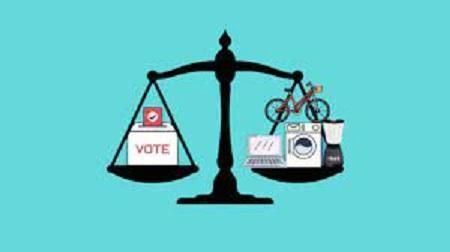Africa-Press – Mauritius. Freebies is not a new concept in many parts of the world, namely in Africa and in some Asian countries. Notwithstanding the censure of media commentators, opposition parties and even by the judiciary, it has stayed on given the absence of clear-cut legal delimitations.
In India, for example political parties are constantly competing with one another to offer the best freebies to entice voters. Indian politicians promise everything to win over potential voters, from free water to free smart phones.
As the “traditional free water and electricity” are no longer sufficient as election gifts, this trend has gained more traction recently as political parties have become more creative in their offerings, stated Rushil Gupta in a comment published in the Times of India. In the wake of a legal challenge, the Supreme Court of India ruled in 2013 in the case S Subramanian Balaji v.
Government of Tamil Nadu, whilst noting that ‘unrealistic campaign promises and giveaways is a dour problem that interferes with elections’ fairness’, that the (Indian) ‘Representation of People Act and other applicable laws cannot be used to interpret promises made in the election manifesto as corrupt practice, and as a result, the distribution of freebies cannot be stopped when the ruling party uses public funds for this purpose by passing Appropriation Acts in state assembly’.
In addition, the court pointed out that ‘there is no law that specifically regulates the election manifesto’s content’. That ruling has been challenged by various petitioners in August 2022 on the ground that ‘the reasoning in the judgment is flawed as it has not considered various provisions of the Representation of the People Act, 1951’.
But in view of the complexity of the issues involved – with some parties contending that ‘all promises cannot be equated with freebies as they relate to welfare schemes or measures for the public good’ – a bench presided by then Chief Justice of India NV Ramana referred the matter to a three-judge bench to look into the petitions for reconsidering the 2013 judgment in S Subramaniam Balaji vs State case of Tamil Nadu.
The matter of freebies and populist electoral promises has again come up for debate here in the context of the electoral petition of Suren Dayal challenging the election of MSM leader Pravind Jugnauth and his two running mates, and as heard by the Privy Council last Monday.
Various key points from the judgment in the case Raj Ringadoo v Ashock Jugnauth were referred to in the submissions of S. Dayal’s Counsel before the Privy Council, namely relating to what constitutes normal election promises as against unlawful promises, whether those promises are contained in the electoral manifestos or not and the timing of such promises.
That these issues have been raised would suggest that the Representation of the People Act does not provide a sufficiently explicit basis of what is proper or improper or even lawful or unlawful.
For More News And Analysis About Mauritius Follow Africa-Press







